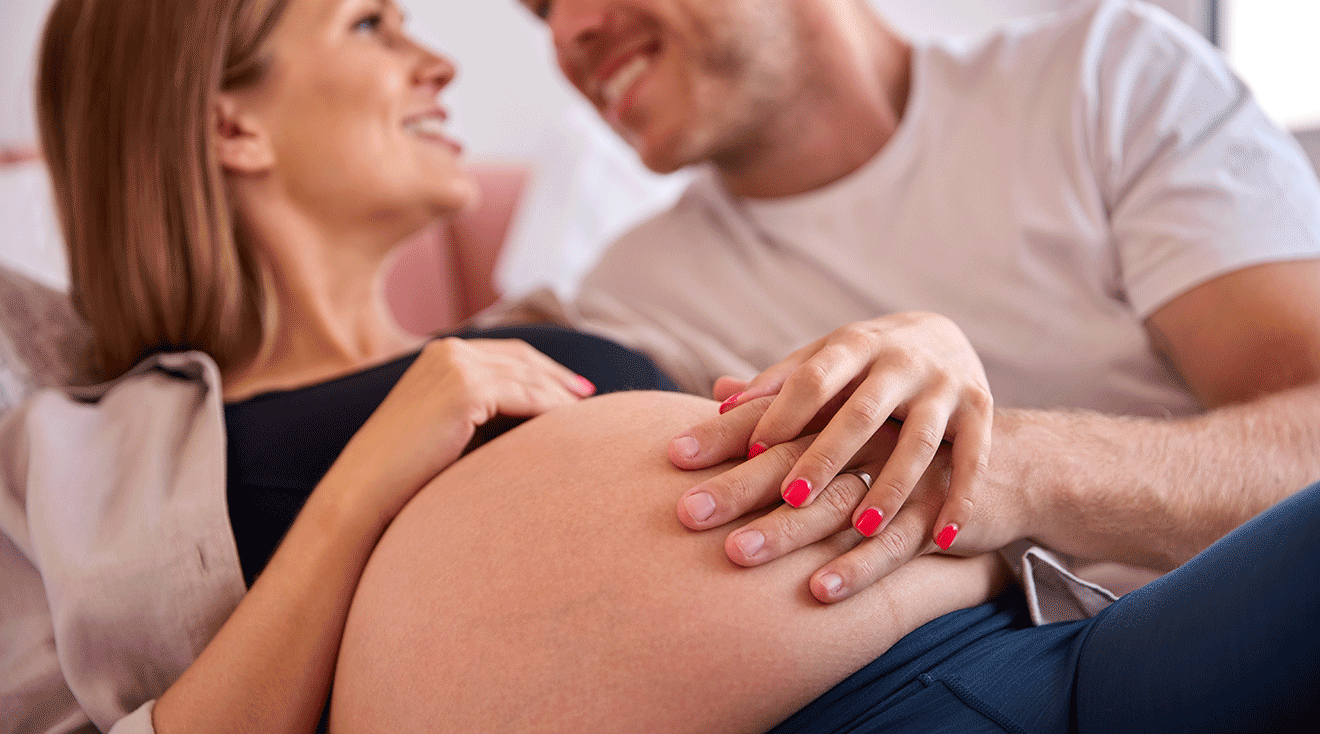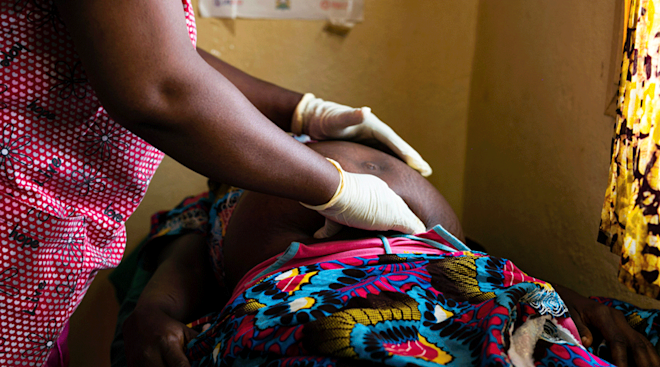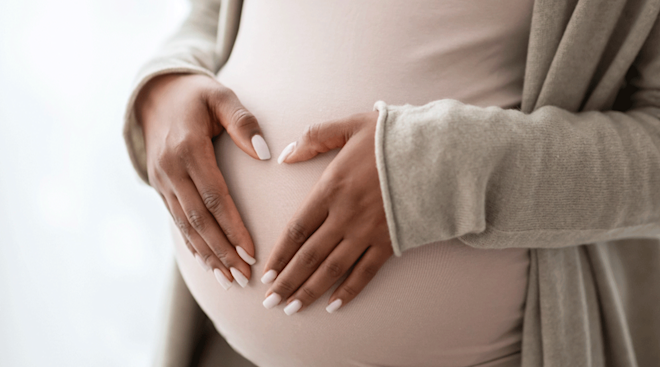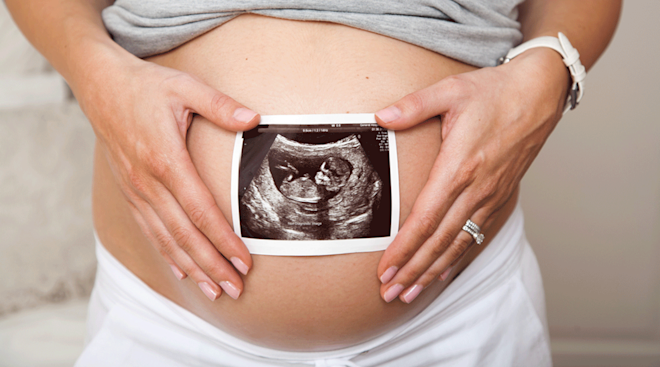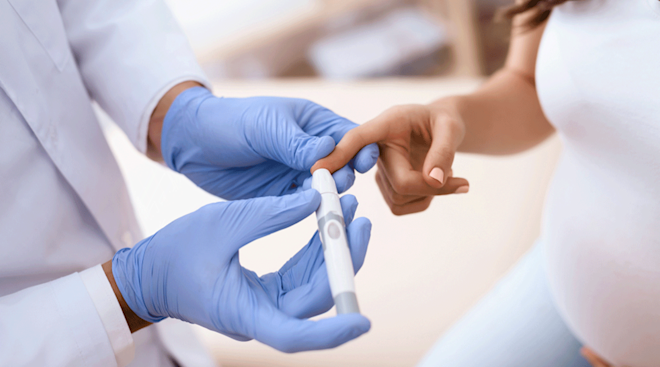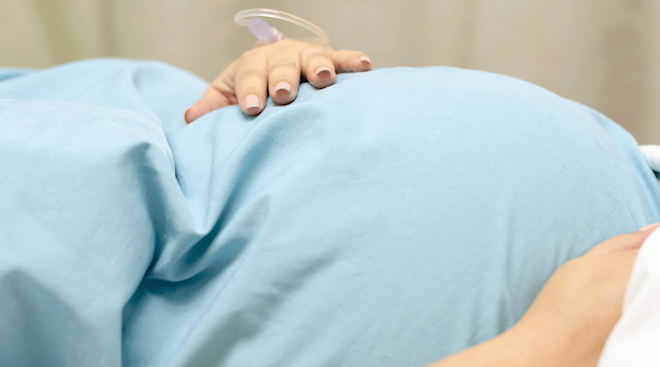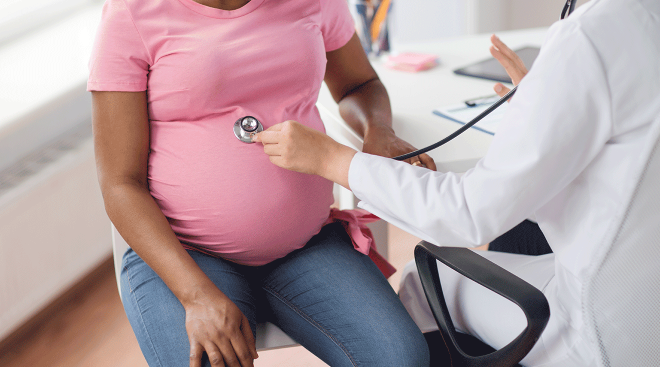Superfetation: Can You Get Pregnant While Pregnant?
Just when you thought your early-pregnancy worry list couldn’t get any longer, enter: superfetation, or the possibility of getting pregnant while already pregnant. Superfetation is an extraordinarily rare, but it is technically possible. Panicking already? Rest assured that the odds of having “superfetation twins” are extremely slim. That said, it’s pretty fascinating stuff!) Read on to find out all there is to know about the incredibly mind-boggling phenomenon that is superfetation.
Getting pregnant while already pregnant, also known as superfetation, is incredibly rare, but possible. There are different possible scenarios for how this remarkable phenomenon can occur. Kelli Burroughs, MD, ob-gyn and department chair at Memorial Hermann Sugar Land Hospital in Sugar Land, Texas, describes one: “Typically, after a woman conceives, the body naturally stops ovulating. In very rare cases, ovulation continues after a woman becomes pregnant.” A second scenario is that, in some cases, two eggs can be released during ovulation, which would normally result in a typical fraternal twin pregnancy. However, in the case of superfetation, the second egg essentially hibernates and then implants much later than the first.
In short, superfetation is an exceedingly rare event that “occurs when an egg is ovulated and fertilized, and the resulting embryo implants during an ongoing pregnancy,” says Sasha Andrews, MD, a board-certified maternal-fetal medicine specialist at Pediatrix Medical Group in Denver.
Superfetation vs. twins
Superfetation is different from a twin pregnancy because of the timing of fertilization. With a twin pregnancy, both eggs are fertilized at the same time, while in superfetation, there’s a gap between when the first egg and second egg are fertilized. Andrews elaborates, “This is different than a twin pregnancy in that twins are conceived at the same time, either from a fertilized egg that splits (identical twins) or from two eggs that are fertilized at once (fraternal twins).”
Superfetation vs. superfecundation
Superfetation involves two embryos that form during two separate menstrual cycles, per Cleveland Clinic. Superfecundation—an even rarer occurrence—happens when sperm from separate acts of intercourse (and possibly even from separate partners) reach two separate eggs during the same ovulation period.
Superfetation is so rare that the chances of it happening to you are practically nonexistent. In a March 2024 case report, researchers listed that there have been only 14 documented cases in recorded history. However, the odds of superfetation are growing ever so slightly higher in modern times. According to Andrews, “it’s becoming more common with assisted reproductive technologies such as in vitro fertilization.” In fact, in a 2010 case report, researchers asserted that most superfetation cases have occurred after assisted reproductive technologies.
“There are no unique symptoms of a superfetation pregnancy,” says Burroughs. “Patients may experience no symptoms at all or typical symptoms of pregnancy including nausea, breast tenderness and weight gain.”
Superfetation is challenging to diagnose in early pregnancy because the symptoms can appear the same as any other pregnancy, and it’s so rare that it’s not something doctors routinely check for. Andrews illustrates a scenario in which atypical symptoms would be present: “Some cases of superfetation have resulted in a heterotopic pregnancy, where one embryo implants within the uterus, and the other is an ectopic pregnancy within the fallopian tube. In these cases, symptoms such as abdominal pain or vaginal bleeding can occur.” Ectopic pregnancies aren’t ever viable.
Burroughs explains what would be required for a superfetation diagnosis: “Diagnosis of superfetation would include review of the menstrual cycle history and an ultrasound. The most common presentation of a superfetation pregnancy is confirmation of a pregnancy followed by confirmation of an additional pregnancy, on a different date, with significant size difference.”
Cases of superfetation that result in ectopic pregnancy are particularly risky and “can result in life-threatening bleeding, requiring blood transfusion or surgery,” says Andrews.
There are also risks if both fetuses are within the uterus. Burroughs explains that superfetation “can lead to asynchronous growth of the fetuses during pregnancy. This means that while one baby may be fully developed and ready for birth, the other may still be in an earlier stage of development, putting the younger fetus at risk of premature birth.” Additionally, any twin pregnancy is more likely to lead to preterm birth, says Andrews.
Preterm birth can cause a host of issues for baby, including “difficulties with breathing, low birth weight, challenges with movement and coordination, feeding difficulties and serious complications such as brain hemorrhage and neonatal respiratory distress syndrome, which is a breathing disorder stemming from underdeveloped lungs,” says Burroughs.
Superfetation occurs so rarely that it’s probably not something you really need to have on your radar. However, if you got pregnant with the help of assisted reproductive technologies such as in vitro fertilization (IVF) and your mama senses tell you something’s amiss, it might be worth bringing up superfetation to your healthcare provider. Or, on the very, very off chance that one of your ultrasounds reveals one more fetus than there used to be, you’ll know what to suspect.
Please note: The Bump and the materials and information it contains are not intended to, and do not constitute, medical or other health advice or diagnosis and should not be used as such. You should always consult with a qualified physician or health professional about your specific circumstances.
Plus, more from The Bump:
Sasha Andrews, MD, is a board-certified maternal-fetal medicine specialist at Pediatrix Medical Group in Denver. She received her medical degree from Baylor College of Medicine.
Kelli Burroughs, MD, is an ob-gyn and department chair at Memorial Hermann Sugar Land Hospital in Sugar Land, Texas. She received her medical degree from Medical University of South Carolina.
Ultrasound in Obstetrics & Gynecology, Spontaneous Superfetation Diagnosed in the First Trimester with Successful Outcome, December 2002
Cleveland Clinic, Superfetation, January 2023
Ginekologia Polska, Superfecundation in Etiology of Twin Pregnancy, October 2006
Clinical Case Reports, Superfetation and Heterotopic Pregnancy: Case Report of Two Rare Phenomena Coexisting and Implications in the Era of Assisted Reproductive Technologies, March 2024
Reproductive BioMedicine Online, Superfetation After Ovulation Induction and Intrauterine Insemination Performed During an Unknown Ectopic Pregnancy, 2010
Learn how we ensure the accuracy of our content through our editorial and medical review process.
Navigate forward to interact with the calendar and select a date. Press the question mark key to get the keyboard shortcuts for changing dates.
































